Gasoline Tank
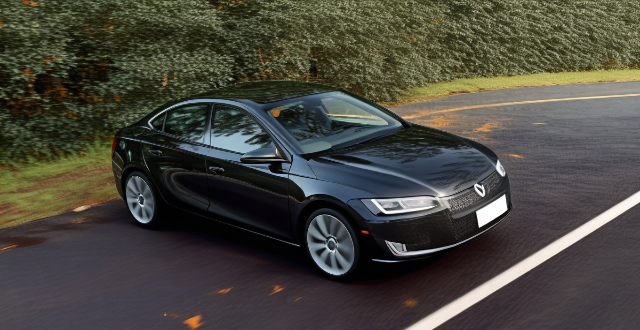
How far can a gasoline hybrid car travel on a full tank of gas ?
The text discusses the fuel efficiency and range of gasoline hybrid cars on a full tank of gas. Factors affecting fuel efficiency include driving habits, traffic conditions, vehicle maintenance, and weather conditions. Gasoline hybrid cars typically have higher fuel efficiency ratings than traditional gasoline-powered cars due to their combination of an electric motor and a gasoline engine. The estimated range of many gasoline hybrid cars is around 300-500 miles on a full tank of gas, with some having larger fuel tanks or higher fuel efficiency ratings allowing for greater ranges. Maximizing fuel efficiency can be achieved by considering factors such as driving habits and vehicle maintenance.
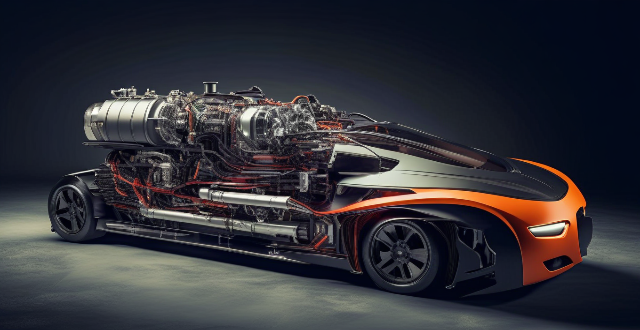
Can I still use gasoline in a gasoline hybrid car ?
Gasoline hybrid cars combine a traditional gasoline engine with an electric motor for improved fuel efficiency and reduced emissions. While they still require gasoline to operate the internal combustion engine, they offer significant savings in fuel costs over time. To maximize fuel efficiency in a gasoline hybrid car, drivers should practice eco-driving techniques, perform regular maintenance, and utilize regenerative braking settings. Gasoline hybrid cars represent a step towards reducing our reliance on fossil fuels and transitioning to cleaner energy sources.

Are gasoline hybrid cars better for the environment than traditional gasoline cars ?
Gasoline hybrid cars, also known as hybrid electric vehicles (HEVs), are becoming increasingly popular due to their potential environmental benefits. These vehicles produce fewer emissions compared to traditional gasoline cars and have better fuel efficiency. They also use regenerative braking technology, which captures energy normally lost during braking and stores it in the battery, further improving fuel efficiency and reducing emissions. However, gasoline hybrid cars also have drawbacks such as higher upfront cost, limited electric-only range, and potential environmental impacts from battery production and disposal. Traditional gasoline cars, on the other hand, are generally less expensive than gasoline hybrid cars and have a widespread refueling infrastructure. They are also often simpler and more reliable than gasoline hybrid cars. In conclusion, gasoline hybrid cars offer several environmental benefits over traditional gasoline cars, but they also come with drawbacks. The decision between a gasoline hybrid car and a traditional gasoline car depends on individual preferences, priorities, and circumstances.

How much more expensive is a gasoline hybrid car compared to a regular gasoline car ?
The cost difference between a gasoline hybrid car and a regular gasoline car can vary depending on several factors such as brand, model, features, and location. However, in general, gasoline hybrid cars tend to be more expensive than regular gasoline cars. Here are some key points to consider: - Gasoline Hybrid Cars: These vehicles typically have a higher initial cost compared to regular gasoline cars due to the additional technology required for the hybrid system. The price difference can range from a few thousand dollars to over $10,000, depending on the make and model. One of the main advantages of gasoline hybrid cars is their improved fuel efficiency. They use both gasoline and electricity to power the engine, which results in better mileage and lower fuel costs over time. While gasoline hybrid cars may have higher repair costs due to their complex systems, they often require less maintenance overall because the electric motor helps reduce wear and tear on the engine. As awareness of environmental issues grows, so does the demand for eco-friendly vehicles like gasoline hybrid cars. This increased demand can help maintain or even increase their resale value over time. - Regular Gasoline Cars: These vehicles are generally less expensive upfront as they do not require the same advanced technology as hybrid cars. These vehicles rely solely on gasoline for power, which can lead to higher fuel consumption and expenses, especially if you drive long distances or frequently idle in traffic. These vehicles may have lower repair costs initially but may require more frequent maintenance, such as oil changes and tune-ups, due to their reliance on a single power source. The resale value of regular gasoline cars may decline faster than that of hybrid cars, especially as more buyers seek out fuel-efficient options.

Do hybrid cars produce less pollution than traditional gasoline cars ?
Hybrid cars generally produce less pollution than traditional gasoline cars, but the comparison is not straightforward and various factors must be taken into account.
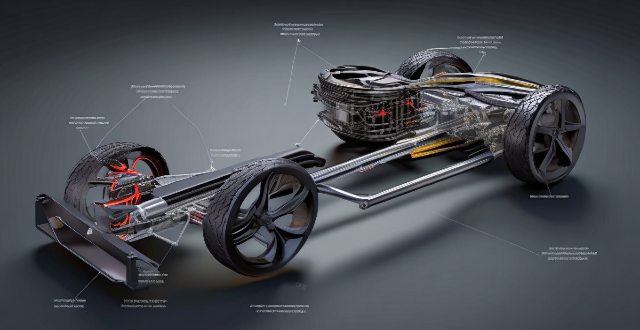
How does a gasoline hybrid car work ?
Gasoline hybrid vehicles, known as HEVs, merge an ICE with an electric motor for enhanced efficiency and reduced emissions. Key components include the ICE, electric motor, battery pack, transmission, and a generator/alternator. These cars can operate in various modes: fully on ICE power, purely electric, combined power, or through regenerative braking. The energy management controller optimizes power distribution for peak efficiency. Benefits of gasoline hybrids include better fuel economy, lower emissions, extended brake life, and potential tax incentives.

Are electric cars more expensive than gasoline cars ?
Electric cars, also known as EVs, have been gaining popularity due to their eco-friendly nature and lower operating costs. However, the initial purchase price of an electric car is often higher than that of a traditional gasoline-powered car. In this article, we will explore the cost differences between electric and gasoline cars. ## Upfront Cost **Electric Cars:** - Higher upfront cost due to expensive battery technology and limited production scale. - Prices vary depending on the model, brand, and range. - Some governments offer incentives and tax credits to offset the high initial cost. **Gasoline Cars:** - Generally less expensive upfront compared to electric cars. - Wide variety of models and brands available at different price points. - No government incentives or tax credits for purchasing a gasoline car. ## Operating Costs **Electric Cars:** - Lower operating costs due to cheaper electricity rates compared to gasoline prices. - Maintenance costs are generally lower since there are fewer moving parts in an electric motor. - Battery replacement can be costly, but it is not expected until after several years of use. **Gasoline Cars:** - Higher operating costs due to fluctuating gasoline prices and regular maintenance requirements. - More frequent oil changes, tune-ups, and other routine maintenance tasks. - Fuel efficiency varies widely among gasoline cars, affecting overall operating costs. ## Depreciation **Electric Cars:** - Depreciation rate may be higher for electric cars due to rapid advancements in technology and changing consumer preferences. - Some early adopters may experience significant depreciation if they choose to sell their electric car before its battery lifespan ends. **Gasoline Cars:** - Generally slower depreciation rate compared to electric cars. - Well-maintained gasoline cars can retain their value for longer periods. ## Resale Value **Electric Cars:** - Resale value depends on factors such as battery health, range, and charging infrastructure availability. - As more people switch to electric cars, the demand for used electric vehicles may increase, potentially boosting resale values. **Gasoline Cars:** - Resale value is typically more predictable and stable compared to electric cars. - Factors such as fuel efficiency, brand reputation, and vehicle condition affect resale value. In conclusion, while electric cars may have a higher upfront cost, they offer lower operating costs and potentially better resale value in the future. It's essential for consumers to consider both short-term and long-term costs when deciding between an electric or gasoline car.
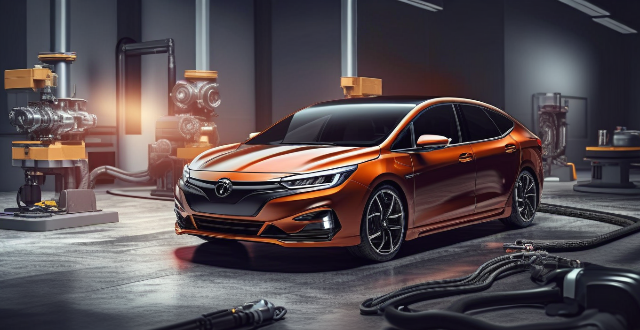
Do gasoline hybrid cars require special maintenance ?
This text discusses the maintenance requirements for gasoline hybrid cars, which combine a conventional engine with an electric motor for added efficiency. While these vehicles do not require extensive special maintenance, there are specific components that need attention. Regular maintenance such as oil changes, tire rotations, brake checks, and air filter replacements are still essential. Additionally, hybrid-specific maintenance includes monitoring battery health, checking the regenerative braking system, ensuring proper cooling of the electric motor, and maintaining transmission fluid levels. It is important to refer to the vehicle's owner's manual for specific maintenance schedules and seek out professional service when needed. By addressing both conventional and hybrid-specific maintenance needs, gasoline hybrid cars can run reliably and efficiently.

What are the benefits of a gasoline hybrid engine ?
The article discusses the advantages of a gasoline hybrid engine, which is a combination of a traditional internal combustion engine and an electric motor. The benefits include improved fuel efficiency through reduced fuel consumption, regenerative braking, and start-stop technology; lower CO2 emissions and decreased pollutants resulting in cleaner air quality; and enhanced performance with instant torque, smooth driving experience, and extended brake life due to regenerative braking. Overall, gasoline hybrid engines provide a balance between power and efficiency, making them an attractive option for eco-conscious drivers.
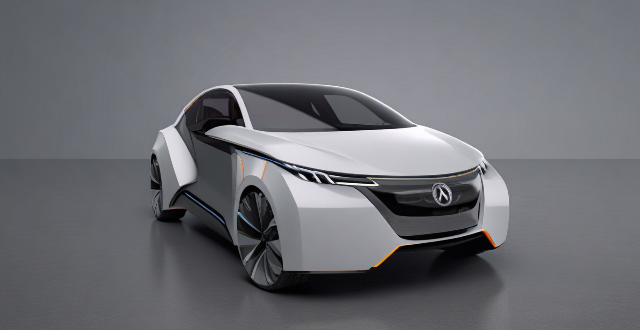
What is the difference between a gasoline hybrid and an electric car ?
The main difference between a gasoline hybrid and an electric car is their fuel source and how they generate energy. Gasoline hybrids run on a combination of gasoline and electricity, while electric cars run solely on electricity. Gasoline hybrids produce lower emissions than traditional gasoline-powered vehicles but still require gasoline to operate. Electric cars produce zero tailpipe emissions but may still result in emissions from electricity production. Finally, gasoline hybrids typically have a longer range than electric cars due to their ability to switch between using gasoline and electricity depending on driving conditions.

How do parallel hybrid electric vehicles (PHEVs) compare to traditional gasoline cars in terms of performance ?
Parallel Hybrid Electric Vehicles (PHEVs) offer better acceleration and fuel efficiency than traditional gasoline cars but may have lower top speeds and require more time for recharging. Gasoline cars have higher top speed capabilities and quicker refueling but are less efficient and require more maintenance. The choice between the two depends on individual needs and preferences.

How do power batteries compare to traditional gasoline engines in terms of cost and efficiency ?
Power batteries and traditional gasoline engines are two different types of energy sources that are used to power vehicles. In this article, we will compare the cost and efficiency of power batteries and traditional gasoline engines. Power batteries have a higher initial cost than traditional gasoline engines, but require less maintenance and have lower fuel costs. They also have a higher energy conversion efficiency and can recharge through regenerative braking. However, they have a limited range compared to traditional gasoline engines. Traditional gasoline engines have a lower initial cost than power batteries, but require more maintenance and have higher fuel costs. They also have a lower energy conversion efficiency and cannot recharge through regenerative braking. However, they have a longer range than power batteries. Overall, while power batteries have a higher initial cost and limited range compared to traditional gasoline engines, they offer several advantages in terms of cost and efficiency. As technology continues to advance, it is likely that power batteries will become even more cost-effective and efficient compared to traditional gasoline engines.
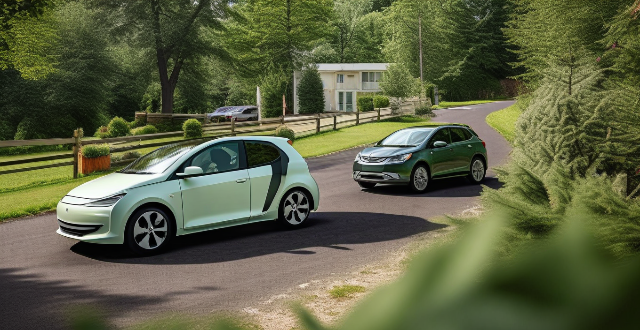
Are there any tax incentives for owning a gasoline hybrid car ?
Tax incentives for owning a gasoline hybrid car include federal tax credits, state and local tax breaks, and renewable fuel tax credits. These benefits aim to encourage eco-friendly vehicle choices and reduce greenhouse gas emissions.
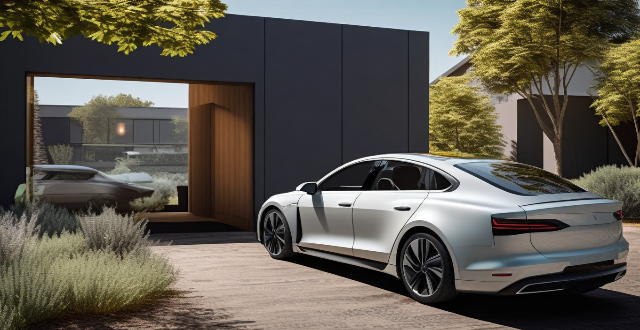
Is it more cost-effective to drive an electric or gasoline-powered car ?
In this article, we explored the cost-effectiveness of driving an electric car versus a gasoline-powered car. While electric cars may have a higher initial cost, they offer several advantages in terms of cost-effectiveness over the long term. Lower maintenance costs, cheaper fuel costs, and potential tax incentives make electric cars a more economical choice for many consumers. Additionally, electric cars have a smaller environmental impact compared to gasoline-powered cars, making them a more sustainable option for transportation.
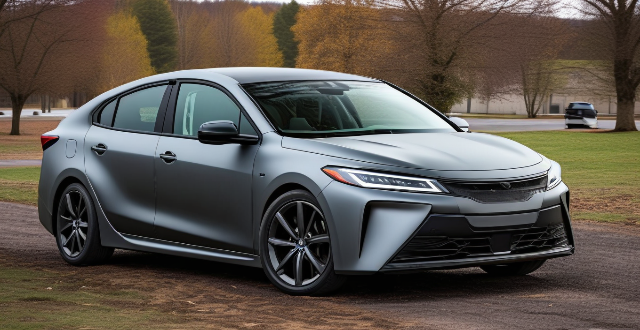
How do gasoline hybrid cars perform in cold weather ?
Gasoline hybrid cars' performance in cold weather can be affected by reduced battery capacity, thicker engine oil, and decreased tire traction. Proper maintenance and adjustments to driving habits are crucial for safe and efficient operation during the colder months.
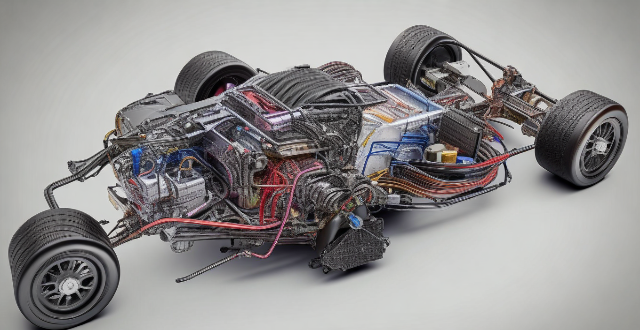
How do electric cars compare to hybrid cars ?
Electric cars run solely on electricity and produce zero emissions, while hybrid cars combine a gasoline engine with an electric motor for improved fuel efficiency. Electric cars offer environmental benefits and lower operating costs but have limited range and long charging times. Hybrids provide a balance between gasoline-powered vehicles and electric cars, with improved fuel efficiency and no range limitations but still rely on gasoline and produce emissions. The choice between the two often depends on individual needs and preferences.
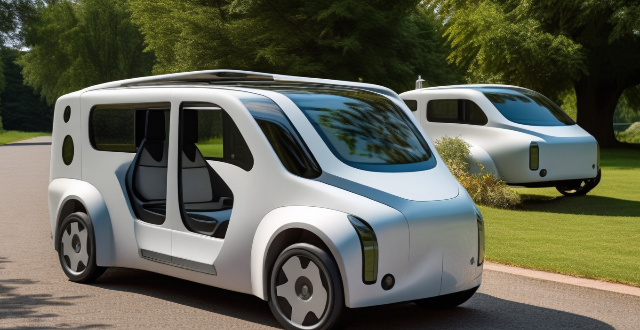
How do CHEVs compare in performance to fully electric vehicles ?
Chevrolet's hybrid electric vehicles (CHEVs) and fully electric vehicles (EVs) offer unique benefits and drawbacks. CHEVs have a longer range than EVs because they use both gasoline and electricity to power the vehicle, while EVs rely solely on electricity to power the vehicle. CHEVs are more efficient than traditional gasoline-powered vehicles, but less efficient than EVs. EVs are the most efficient type of vehicle because they produce zero emissions and use less energy than CHEVs. CHEVs typically have slower acceleration times than EVs due to their reliance on both gasoline and electricity, while EVs have faster acceleration times because they rely solely on electricity to power the vehicle. CHEVs require less maintenance than traditional gasoline-powered vehicles, but more maintenance than EVs. EVs require very little maintenance compared to CHEVs and traditional gasoline-powered vehicles.

Are CHEVs more expensive to maintain compared to regular hybrid vehicles ?
The article discusses the maintenance costs of Chevrolet (CHEV) and regular hybrid electric vehicles (HEVs), which are both designed to reduce fuel consumption and emissions. The powertrain configurations and operational strategies of CHEVs and regular HEVs differ, with CHEVs typically having a larger battery pack and prioritizing using electricity from the battery before switching to gasoline, while regular HEVs use both gasoline and electricity simultaneously or alternate between them based on driving conditions. Regarding maintenance costs, CHEVs may require more frequent battery replacements due to their larger size and higher usage, but their engines may experience less wear and tear since they spend more time in electric mode. On the other hand, regular HEV engines may require more maintenance due to constant switching between gasoline and electric power, but they generally have smaller batteries that last longer. In terms of transmission maintenance, CHEV transmissions may be simpler since they rely primarily on electric motors, while regular HEV transmissions may be more complex due to the need to manage both gasoline and electric power sources. Tire maintenance may also differ between CHEVs and regular HEVs, with CHEV tires potentially wearing differently due to regenerative braking systems, while regular HEV tires may not experience significant differences in wear patterns compared to traditional gasoline vehicles. Overall, while CHEVs may have higher initial costs due to their larger battery packs, they could potentially save money in the long run by reducing engine maintenance needs. However, regular HEVs might require less frequent battery replacements and simpler transmission maintenance. It is essential to consider individual driving habits and vehicle usage when evaluating maintenance costs for CHEVs and regular HEVs.
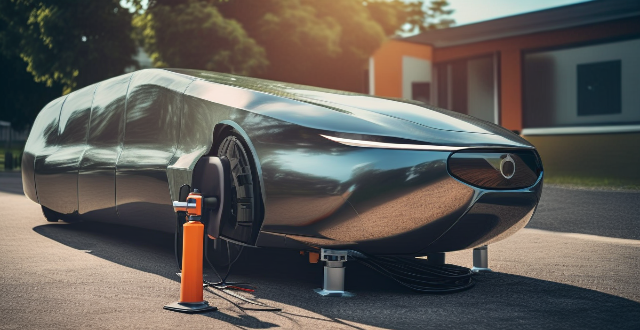
What are the pros and cons of owning an electric car ?
The pros of owning an electric car include environmental benefits, lower operating costs, quiet and smooth rides, tax incentives, and energy independence. On the other hand, cons include limited driving range, longer charging times, higher upfront costs, limited charging infrastructure, and potential battery degradation and replacement issues.

Can CHEVs be used for long-distance travel as effectively as conventional hybrids ?
Chevrolet (CHEV) vehicles can be used for long-distance travel just as effectively as conventional hybrid vehicles. However, it's important to understand the differences between the two types of vehicles and how they operate. CHEVs (Chevrolet Hybrid Electric Vehicles) are designed to offer improved fuel efficiency and reduced emissions compared to traditional gasoline-powered vehicles. Some popular Chevrolet hybrid models include the Chevrolet Volt and Chevrolet Malibu Hybrid. Conventional hybrids, also known as self-charging hybrids, use a combination of an internal combustion engine and an electric motor to power the vehicle. Unlike plug-in hybrids, conventional hybrids do not require external charging and rely on regenerative braking and the internal combustion engine to charge their batteries. Examples of conventional hybrids include the Toyota Prius and Honda Insight. Both CHEVs and conventional hybrids are designed to offer improved fuel efficiency compared to traditional gasoline-powered vehicles. However, CHEVs may have slightly better fuel economy due to their larger battery packs and more powerful electric motors. This means that CHEVs could potentially travel farther on a single tank of gas than conventional hybrids. While both CHEVs and conventional hybrids are capable of long-distance travel, their range will depend on several factors such as driving conditions, speed, and terrain. In general, CHEVs may have a longer range due to their larger battery packs and more efficient regenerative braking systems. However, this is not always the case, and some conventional hybrids may have similar or even better range depending on the specific model and driving conditions. One potential advantage of CHEVs over conventional hybrids for long-distance travel is their shorter charging time. Since CHEVs have larger battery packs and more powerful electric motors, they can be charged faster than conventional hybrids. This means that CHEVs may be able to spend less time at charging stations during long-distance trips. Both CHEVs and conventional hybrids require regular maintenance like any other vehicle. However, since CHEVs have more complex systems with additional components such as larger battery packs and electric motors, they may have higher maintenance costs compared to conventional hybrids. This could impact the overall cost effectiveness of using CHEVs for long-distance travel.

What are the environmental benefits of using a CHEV ?
The text discusses the environmental benefits of using a CHEV (Compound Hybrid Electric Vehicle), which includes reduced greenhouse gas emissions, improved fuel efficiency, lower carbon footprint, conservation of natural resources, and reduced noise pollution. CHEVs combine the powertrains of an internal combustion engine and an electric motor, resulting in fewer emissions and lower fuel consumption compared to traditional gasoline-powered vehicles. They also have regenerative braking systems that capture energy from braking and convert it into electricity for storage in the battery, further improving their overall fuel efficiency. By choosing a CHEV over a conventional vehicle, individuals can reduce their personal carbon footprint and help mitigate the effects of climate change.
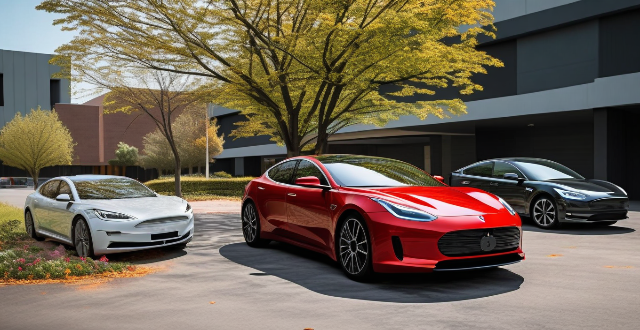
What are the advantages of fuel vehicles over electric cars ?
Fuel vehicles have several advantages over electric cars, including longer range, faster refueling time, more affordable upfront cost, more accessible charging infrastructure, and lower maintenance costs.

What is the potential for clean energy technology to transform transportation ?
Clean energy technology has the potential to revolutionize transportation by reducing emissions, improving air quality, and enhancing energy security. This can be achieved through electric vehicles (EVs), hydrogen fuel cells, renewable energy sources, and smart grid technologies. EVs offer reduced emissions, energy efficiency, lower operating costs, and quiet operation. Advances in battery technology have increased range and reduced charging times for EVs. Charging infrastructure is being developed to support the growing number of EVs. Hydrogen fuel cell vehicles provide long-range travel and rapid refueling while utilizing renewable energy sources. However, they face challenges such as high production costs and limited infrastructure. Renewable energy sources like solar, wind, and hydropower can provide clean electricity for EVs and hydrogen production. Smart grid technologies enable efficient management of electricity demand and supply, supporting the integration of renewable energy into the power grid. Overall, clean energy technology has the potential to significantly transform the transportation sector towards sustainability.

How does the cost of installing and using electric vehicle charging stations compare to traditional fueling stations ?
The transition from traditional combustion engines to electric vehicles significantly impacts fueling infrastructure, with costs associated with installing and using electric vehicle charging stations differing from those of traditional fueling stations. Initial installation for EV charging might be higher due to electrical upgrades required, but operational costs are generally lower than for traditional fueling stations. User costs for EV charging can also be more predictable and potentially lower when taking advantage of off-peak electricity rates.

How can we reduce greenhouse gas emissions in our daily lives ?
This article explores various ways to reduce greenhouse gas emissions in daily life, including using public transportation, walking or cycling, maintaining vehicles, using energy-efficient appliances and lighting, adjusting heating and cooling settings, recycling, reducing waste, adopting a plant-based diet, and choosing sustainable seafood. These actions can help mitigate climate change and create a sustainable future.

What are the challenges faced by electric transportation systems ?
Electric transportation systems face several challenges, includingElectric transportation systems face several challenges, including, lack of infrastructure and charging high cost of electric vehicles, environmental concerns, and potential for higher maintenance and repair costs. Addressing these challenges is crucial for the widespread adoption and success of electric transportation systems as a sustainable alternative to traditional fossil fuel-powered vehicles.